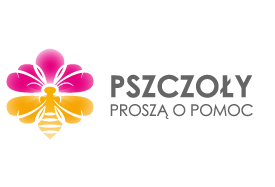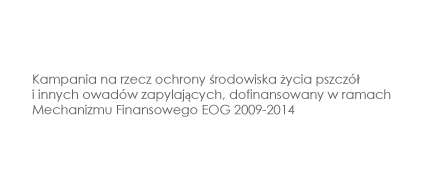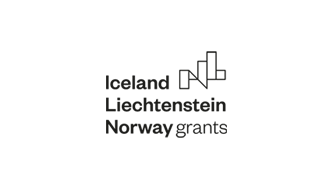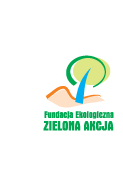The Ecological Foundation “Green Action” have undertaken the project “Bees ask for help – the campaign to preserve habitats of bees and other pollinators”in order to raise the countryside residents’ awareness of a decrease in pollinators’ population and their significance to the biodiversity, to engage local communities in preservation of countryside pollinators’ habitats and to start a big social discussion between everyone that is interested in finding the solutions to protect pollinators population.
The campaign started in May of 2014 and will end in April of 2016, which gives 2 years of project realization. The project will take place in 5 voivodeships : Lower Silesian, Opole, Silesian, Świętokrzyskie and Lubusz.
The project is planned to take the following actions:

There will be organized 5 regional conferences titled “Protecting pollinators as a condition for preserving ecosystems and food production” to expose the problem, promote environmental actions and facilitate the exchange and integration of ideas in order to preserve ecosystem for pollinators. There will be invited: representatives of local self-governments, communities, universities, apiarist organizations, local action groups, non-governmental organizations, centre of agricultural counselling, agriculture counselors and apiarists.

There will be created 10 educational trails – model nectariferous zones in the countryside, with planning workshops conducted and planting executed by residents. The first stage will include 2 planning workshops in all 10 project locations. This meeting aim to broaden the social knowledge about nectariferous zones for pollinators population, the use of participatory planning, gaining the public acceptancefor planned educational paths and participation of residents in realization. Nevertheless, the most important is working out the concepts of educational trails with residents like localization and species selection.
The second stage will include creation of 10 model nectariferous zones. Residents engaged in the project will execute planting and mark planting zones with educational board after preparing with expert the plan of planting, premises and recommendations of creating habitats for insects, and buying planting material.

Training courses for biodiversity educators. Within this task there will be prepared 72 biodiversity educators. It will be a group selected from voluntary representatives of associations and groups representing residents of villages,centre of agricultural counselling advisors, representatives of non-government organizations, apiary owners and teachers. Each of 4 training cycles will contain stationary training and study excursion.The purpose of training courses is to prepare people, that will popularize the knowledge about the significance of pollinators in rural areas, and will have ability of teaching countryside residents and conducting local campaigns directed at protection of pollinators lives. It will be the group of leaders with knowledge of biodiversity protection programs on UE, national, voivodeships and local levels.They will be also prepared to affect the provisions of environment protection programs and local space planning for preserving pollinators habitats.

Transferring good practices of creating nectariferous zones into other regions. This task will broaden knowledge of countryside residents, includingagriculturalists, in terms of preserving and creating habitats for pollinators, using model nectariferous zones in education of local communities and creating educational offers based on ecological advantages and apiarying. There will be invited villages from 5 voivodeships, where the project will be conducted and which are interested in increasing the interest around the topic. In each of 6 chosen villages will be training courses, during which 6 concepts of educational trails based on nectariferous zones will be created. Those concepts will be achieved by residents’ planting..

Promotion and information. The web site of the project was created (www.pszczoly.pl) and Facebook fanpage. These sites are dedicated to the broad topic of pollinators significance to the biodiversity and activities of the project. There were created and distributed many informational materials to educate the receivers of the project, like posters, brochures and bookmarks.









